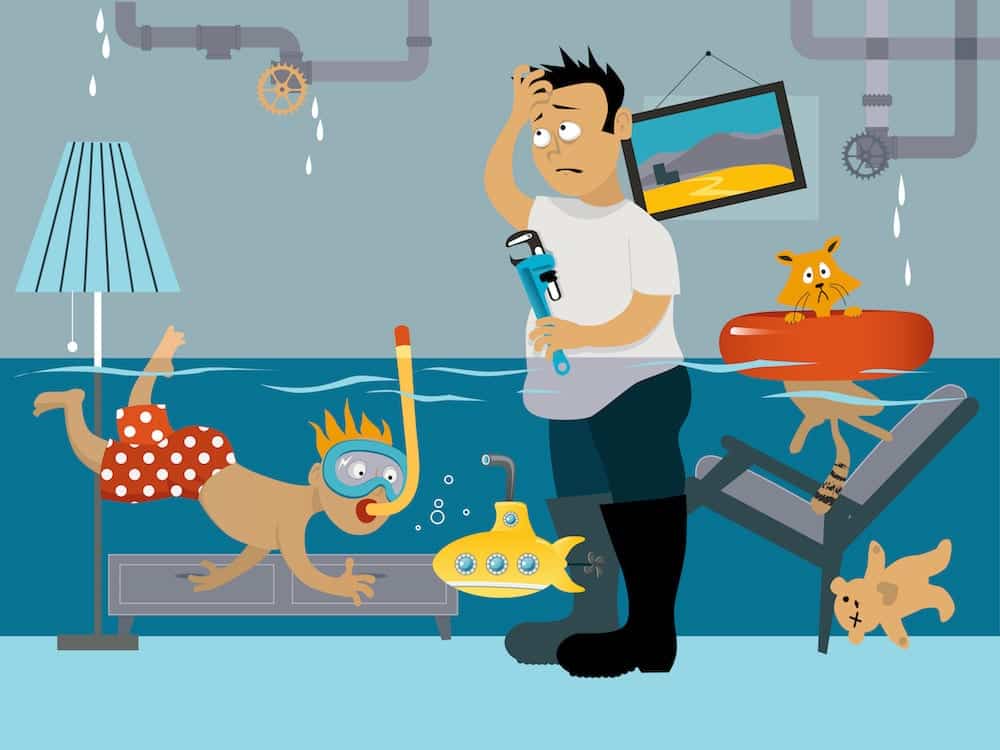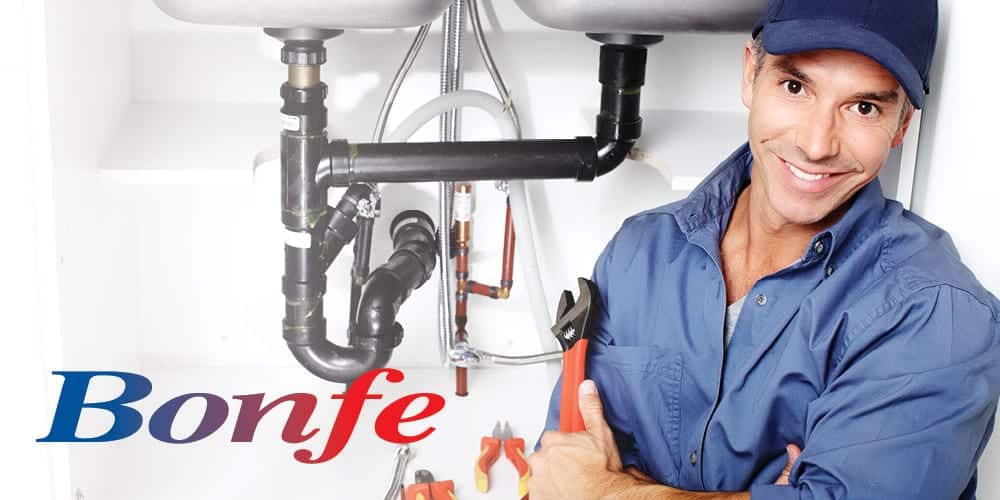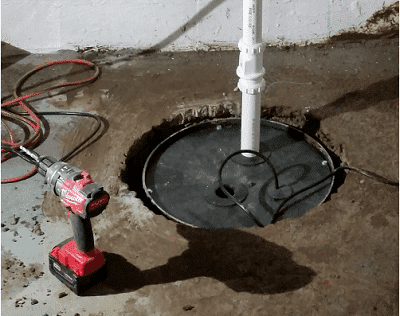March, 2019
Does your insurance policy cover leaks and floods?
Water has a way of going where it wants to go, and it really doesn’t care about your to-do list. From a minor leak in your kitchen to a full-blown flooded basement or burst pipe, wayward water can really ruin your day. Or month. Or home. Or sanity.
But your insurance will cover it, right?
Maybe not.

Many—perhaps most—insurance policies don’t cover leaks and floods. This isn’t a knock on homeowner’s insurance. While it may not be legally required like car insurance, homeowner’s insurance can provide support and peace of mind—and it’s often required by lenders as part of a mortgage. But it’s important to know exactly what your policy covers so you don’t find yourself up a creek…in your basement…without coverage.
Coverage varies widely by policy and provider, but here are a few approaches that are common:
- The Ground Rule. Many policies cover damage caused directly by rainfall, but once the water hits the ground, it’s no longer part of the policy. That may sound a little silly, but there’s an important reason for the distinction. An unusually heavy rainstorm can cause damage that wasn’t there previously, but if the water hits the ground and then leaks into your home, it’s more likely that there was a previously existing issue with the home that allowed the water to leak in (and it’s difficult to prove otherwise).
- The “Oops” Rule. Many policies cover damage caused directly by rainfall, but once the water hits the ground, it’s no longer part of the policy. That may sound a little silly, but there’s an important reason for the distinction. An unusually heavy rainstorm can cause damage that wasn’t there previously, but if the water hits the ground and then leaks into your home, it’s more likely that there was a previously existing issue with the home that allowed the water to leak in (and it’s difficult to prove otherwise).
- The Yuck Rule. Overflowing toilet because the toilet malfunctioned? You might be covered. Overflowing toilet because your sewage system backed up? Probably not. (Overflowing toilet because your toddler crammed a stuffed animal down the pipe? Yeah, probably not there, either.)
It’s also important to note that some of the after-effects of leaks or floods, such as mold damage may not be covered even if the leak itself is covered.
The bottom line: Flooding and water damage are a squishy issue. There’s usually a lot of fine print and clauses when it comes to insurance for these items. Talk with your insurance representative to make sure you understand your own policy. Many insurance policies offer separate “riders” for flood/water damage. You’ll pay more in premiums, so make sure to crunch the numbers to decide if it’s worth it for you.
A common culprit behind basement floods is sump pump failure. As the snow melts this spring, your sump pump will be tested, big time. Make sure it’s up to the challenge with a professional diagnostic assessment.
What else can you do to protect yourself and your home?
Maintain, maintain, maintain. It’s said that an ounce of prevention is worth a pound of cure, and that’s very true when it comes to preventing leaks and water damage. Make sure your plumbing system is properly cared for. Proper care means regular inspections of your entire plumbing system—pipes, sump pumps, drains, and filtration system, as well as faucets, toilets, shower heads, and any other plumbing assets.

Bonfe offers full plumbing system service, inspection, and maintenance. The key is to have your system inspected before the major thaw and spring rains.

What is a sump pump and why should I care?
A sump pump is installed below the lowest level of your house and is designed to collect and divert groundwater before it can get into the interior of your home and cause problems.
If you live in a place where there’s any threat of below-ground water saturation, installing a sump pump is highly recommended. If your home has a history of flooding—you might want a back-up sump pump and a high water alarm. Sound excessive? This is one instance in which the ounce of prevention is really worth the pound of cure. Sump pumps need to be maintained in order to help ensure reliability.
Bonfe can help with all your sump pump needs—installation, service, inspection and maintenance. We’ll help you ensure that spring thaw is a good thing, not cause for a flood!

